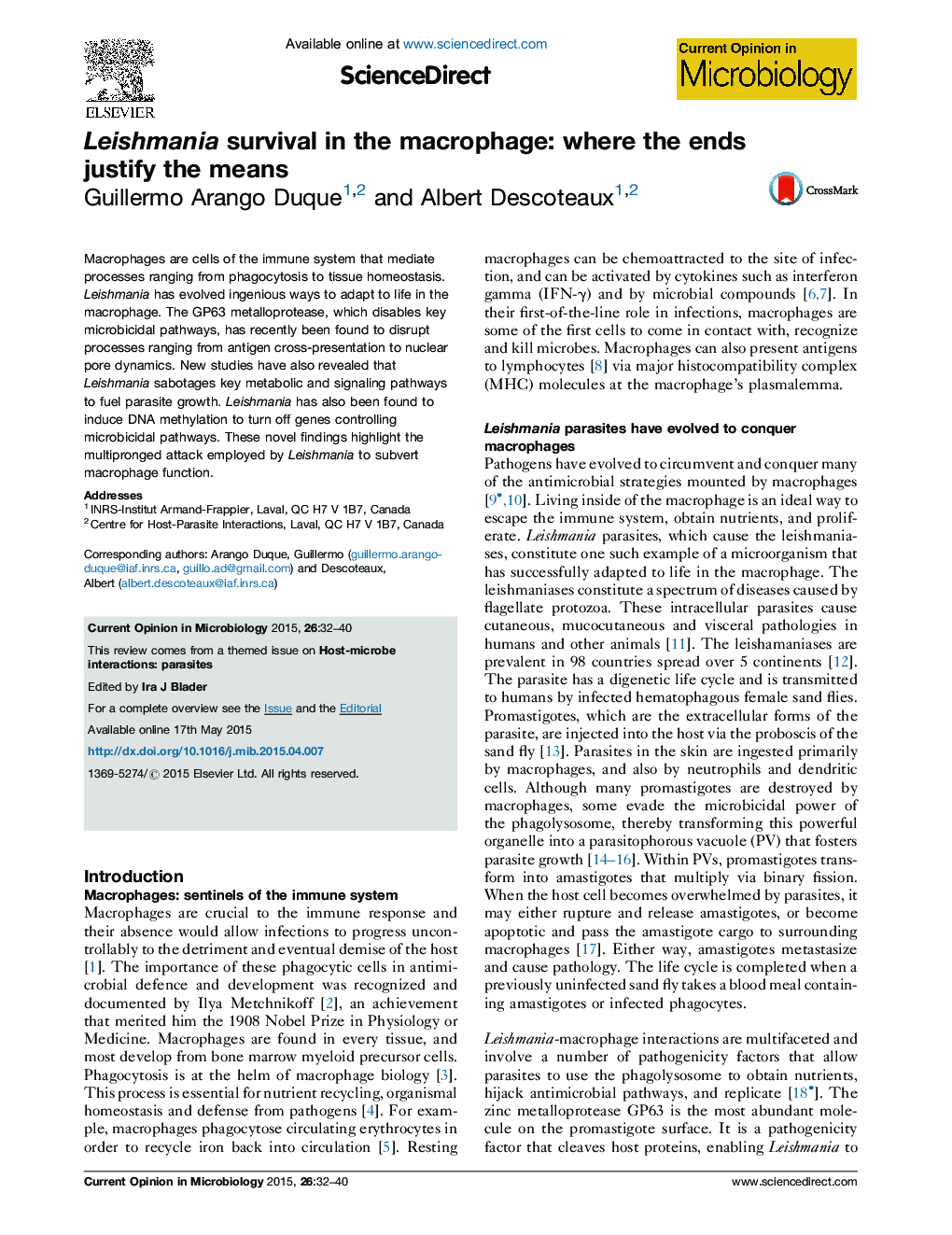| Article ID | Journal | Published Year | Pages | File Type |
|---|---|---|---|---|
| 3399031 | Current Opinion in Microbiology | 2015 | 9 Pages |
•The GP63 metalloprotease selectively degrades molecules involved in membrane trafficking and nuclear physiology.•Cleavage of VAMP8 and Syt XI disrupts cross-presentation and cytokine secretion, respectively.•Leishmania sabotages cholesterol, iron and mitochondrial metabolism to fuel survival.•Leishmania alters the methylation of host genes controlling microbicidal pathways.
Macrophages are cells of the immune system that mediate processes ranging from phagocytosis to tissue homeostasis. Leishmania has evolved ingenious ways to adapt to life in the macrophage. The GP63 metalloprotease, which disables key microbicidal pathways, has recently been found to disrupt processes ranging from antigen cross-presentation to nuclear pore dynamics. New studies have also revealed that Leishmania sabotages key metabolic and signaling pathways to fuel parasite growth. Leishmania has also been found to induce DNA methylation to turn off genes controlling microbicidal pathways. These novel findings highlight the multipronged attack employed by Leishmania to subvert macrophage function.
